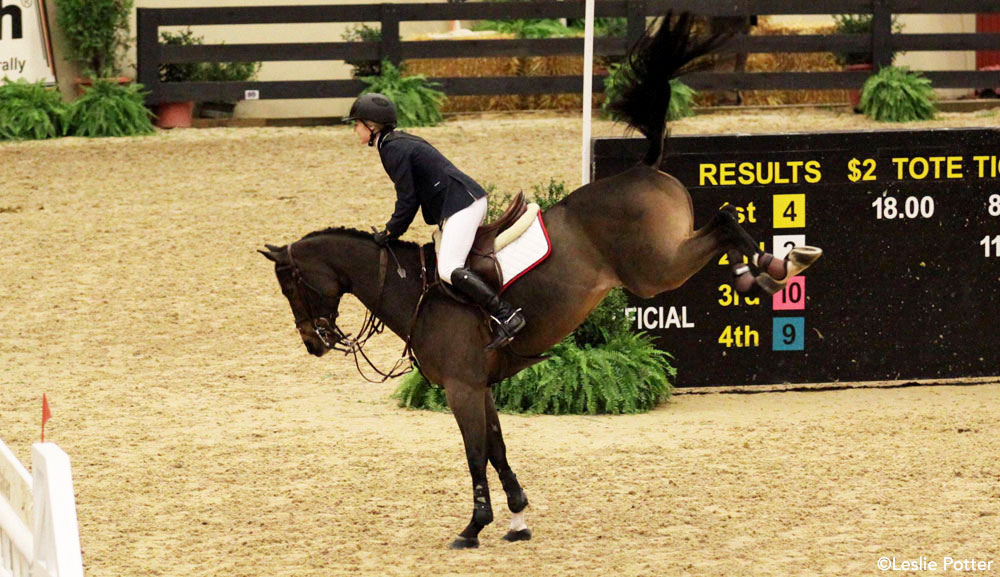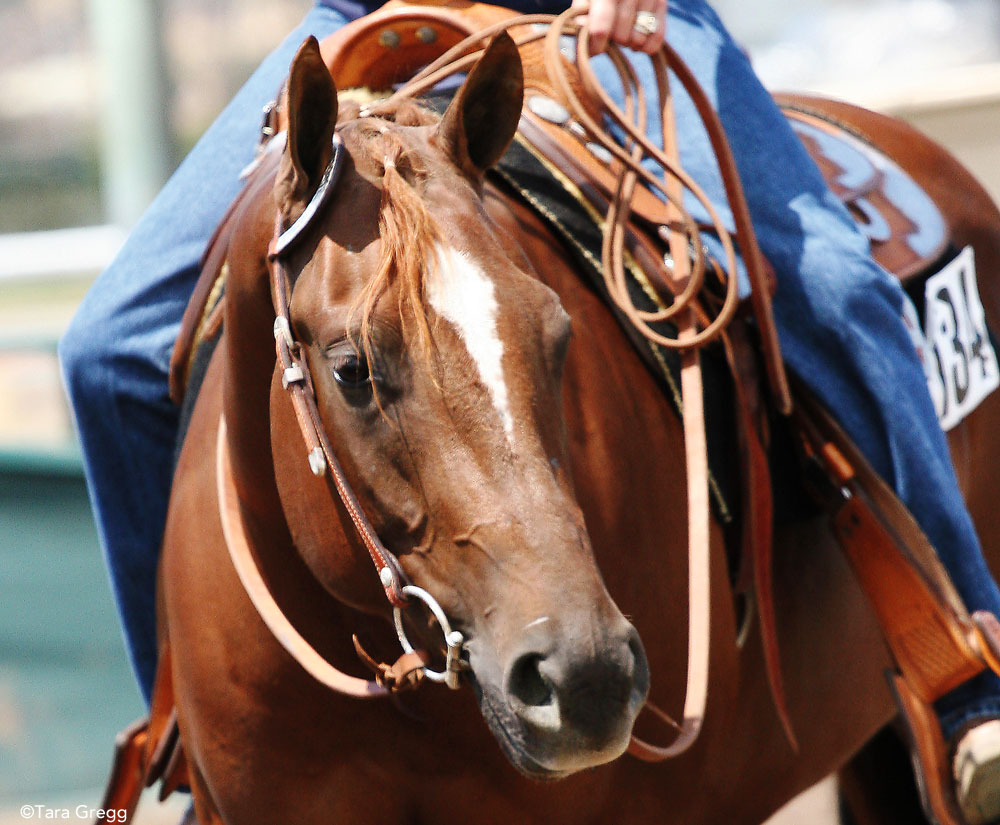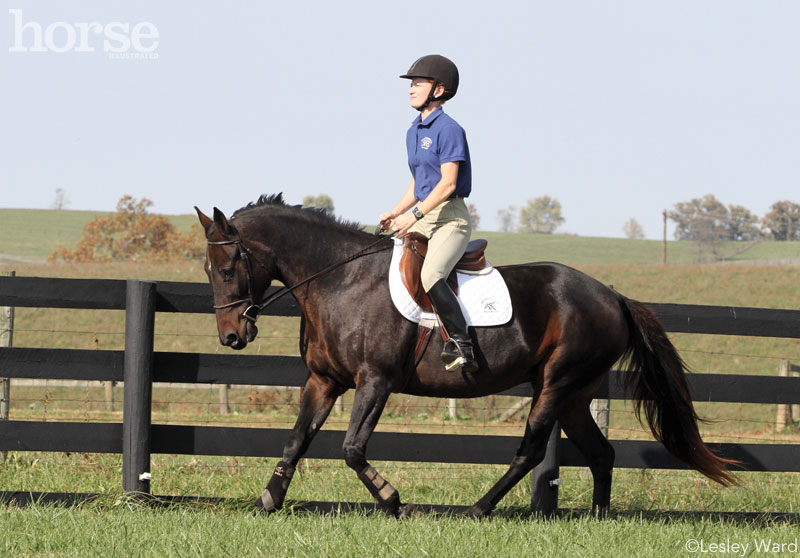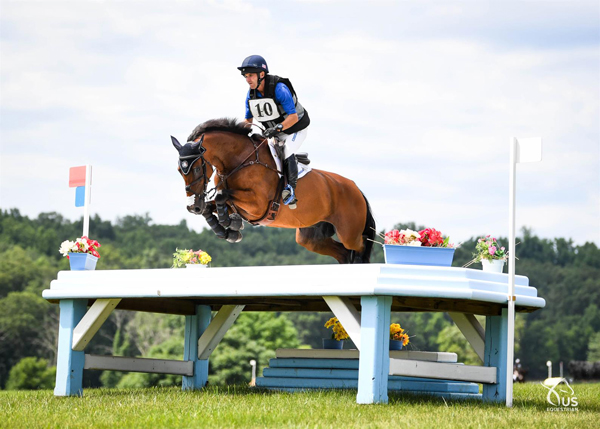
Though a few famous show jumpers were known for their exuberant displays after clearing challenging obstacles, bucking and playing after a jump isn’t admirable behavior. Not only can it unseat a rider, but it’s marked as a major fault in hunter, equitation and medal classes. Once it becomes a habit, it can adversely influence the rider’s performance. Because the rider expects the horse to misbehave after the jump, they ride to short, deep take-off spots so they can maintain control on the landing side. In effect, they’re sacrificing the approach to the jump for fear of what might happen on the other side.
Just in case you’re ever saddled with a demonstrative demon, here are a few tips on how to fix the problem.
- Have your coach or groundperson double-check your position. Without realizing it, your lower leg may be slipping back in mid-air. That means your heels are bumping or gripping your horse’s flank about the time his front feet hit the ground. A sensitive horse could respond by bucking or kicking out, especially if you’re wearing spurs.
- Are you holding your position on top of the jump and when you land? If you’re tossed up and out of the tack in the air, and then fall forward on your horse’s neck as he lands, he has to struggle to maintain his balance. Though that’s not an excuse for him to buck or play, he might be displaying his annoyance. Consider strengthening your position at lower heights for a while.
- Could the horse be sore-footed? An otherwise trustworthy horse that suddenly begins to buck or misbehave upon landing after a jump may be experiencing pain. Bruised or thin soles are just one reason why a horse’s feet might sting when landing after a jump. Have your vet investigate this possibility.
- Once you’ve ruled out other causes, short-circuit your horse’s bad habit. Ride to the appropriate take-off spot; don’t anticipate your horse being bad. Yet the moment he lands, isolate one rein (we’ll use the right rein here as an example) and lift it up and back in a motion similar to a half-halt. But unlike half-halting or simply holding with both reins, the one-rein approach won’t allow your horse to lean on your hands and drop his head. Lift up and back with the right rein as you continue forward with a strong canter. After three or four strides, circle right. If your horse attempts to buck or play, send him forward on the circle while repeatedly half-halting with the right rein. Next time, isolate your left rein and circle left.
- Another schooling option is to place a ground pole about 10-12 feet (12 feet if it’s a high, wide oxer) away from the jump on the landing side. In order to canter over this placement pole, your horse has to keep his weight on his hindquarters. This will prevent him from lugging down on the bit and leaning on your hands, a prelude to bucking. If these tactics don’t solve the problem, seek advice—and consider paying for some professional schooling rides—from a local trainer who has demonstrated success in reforming sport horses with behavioral issues.
See more Horsemanship How-tos >>






Great information. I have seen this happen at shows. There is a HC video where the rider actually makes it look easy. Amazing jumping and riding.
The 5 year old horse we lease for our teen daughter to ride bucks frequently, always when asked for speed, while running, or when she gently kicks(with no spurs!)to try to get him to run. He does it with a saddle, bareback pad, or totally bareback. This was a good article, but what about the western horse that bucks? This horse seems to enjoy what’s asked of him, & he likes my daughter, but I’m worried she’s going to get seriously hurt. She’s been riding him & training him since Sept. of this past year.
I like the article but I need more I have a 4year old gelding that bucks realy bad he will buck after jumps and before jumps he just wil keep bucking till I fall of I don’t know what to do my friend ride him as well but he just don’t learn or listen I’m scerd becuase I already got hurt one time and I am afraid that next time I mitgh just break something I really need help
I ride a horse that does both English and western and he does little crow kicks after jumps and when he gets excited. if it was just the crow kicks I could handle that but right after he crow kicks, he then takes off running. what can I do for this?
Good article.